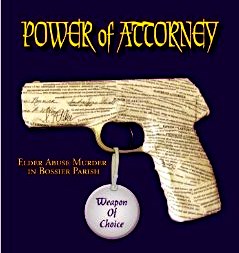A party wishing to contest the issuance of a grant of probate or administration may file a Notice to Dispute under Rule 25 (10) of the Supreme Court Rules.
While a notice to dispute is in effect, the registrar must not issue an estate grant. The court may, on application, remove the notice of dispute if the court determines that the filing is not in the best interests of the estate. A notice of dispute is in effect for one year after the date of filing unless renewed or removed by order of the court or the will is proved in solemn form.
Re: Dow Estate 2015 BCSC 292 stated:
[14] A person who is interested in an estate including an applicant for the estate grant could apply to set aside the notice of dispute pursuant to Rule 25-10(10). The court may remove the notice of dispute if the court determines that the filing is not in the best interests of the estate (Rule 25-10(11)).
Rule 25-10 — Notices to Dispute
(1)To oppose the issuance of an estate grant, an authorization to obtain estate information or an authorization to obtain resealing information or to oppose the resealing of a foreign grant, a person to whom documents have been or are to be delivered under Rule 25-2 (2) must file a notice of dispute that accords with subrule (3) of this rule before the earlier of:
(a) the issuance of an authorization to obtain estate information or an authorization to obtain resealing information, and
(b) the issuance of an estate grant or the resealing of a foreign grant.
[en. B.C. Reg. 149/2013, s. 8.]
Only one notice of dispute to be filed
(2)A person must not file more than one notice of dispute in relation to any one estate.
[en. B.C. Reg. 149/2013, s. 8.]
Contents of notice to dispute
(3)A notice of dispute referred to in subrule (1) must be in Form P29, must provide an address for service of the disputant, which address for service must be an accessible address that complies with Rule 4-1 (1), and must disclose
(a) that the disputant is a person to whom documents have been or are to be delivered under Rule 25-2 (2), and
(b) the grounds on which the notice of dispute is filed.
[en. B.C. Reg. 149/2013, s. 8.]
Amendment of notice to dispute
(4)A notice of dispute may be amended once without leave of the court, and after that only with leave of the court.
[en. B.C. Reg. 149/2013, s. 8.]
(5)Rule 6-1 (2) and (3) applies to an amendment of a notice of dispute without leave of the court and, for that purpose, a reference in that rule to a pleading is deemed to be a reference to the notice of dispute.
[en. B.C. Reg. 149/2013, s. 8; am. B.C. Reg. 44/2014, Sch. 1, s. 8 (a).]
Renewal of notice of dispute
(6)The court may renew a notice of dispute, for any period the court considers appropriate, as follows:
(a) if the application for renewal is brought before the notice of dispute ceases to be in effect, if the court is satisfied that it is appropriate to make an order for renewal;
(b) if the application for renewal is brought after the notice of dispute ceases to be in effect, if the court is satisfied that
(i) there were good reasons that the application for renewal could not be brought before the notice of dispute ceases to be in effect,
(ii) substantial prejudice would be suffered by the person seeking renewal of the notice of dispute if the order for renewal is not made, and
(iii) no other person interested in the estate would suffer substantial prejudice if the order for renewal is made.
[en. B.C. Reg. 149/2013, s. 8.]
Application for renewal of notice of dispute
(7)Subject to Rule 8-5 (6), an application to renew a notice of dispute filed in relation to an estate must be made on notice to
(a) each person who has submitted for filing a submission for estate grant, or a submission for resealing, in relation to the estate,
(b) each person who has filed a notice of dispute in relation to the estate, and
(c) any other interested person to whom the court directs notice be given.
[en. B.C. Reg. 149/2013, s. 8.]
No grant while notice to dispute in effect
(8)While a notice of dispute is in effect in relation to the estate of a deceased, the registrar must not, with respect to that estate,
(a) issue an estate grant, an authorization to obtain estate information or an authorization to obtain resealing information, or
(b) reseal a foreign grant.
[en. B.C. Reg. 149/2013, s. 8.]
Withdrawal of notice of dispute
(9)A disputant may withdraw a notice of dispute by filing a withdrawal of notice of dispute in Form P30.
[en. B.C. Reg. 149/2013, s. 8.]
Application to remove notice of dispute
(10)A person who is interested in an estate in relation to which a notice of dispute has been filed, including, without limitation, an applicant for an estate grant or for the resealing of a foreign grant, may apply on notice to the disputant for an order removing the notice of dispute.
[en. B.C. Reg. 149/2013, s. 8.]
Grounds on which notice to dispute may be removed
(11)On an application under subrule (10), the court may, by order in Form P31, remove a notice of dispute if the court determines that the filing is not in the best interests of the estate.
[en. B.C. Reg. 149/2013, s. 8.]
When notice of dispute ceases to be in effect
(12)A notice of dispute in relation to an estate ceases to be in effect as follows:
(a) subject to paragraph (b), on the date that is one year after the date on which the notice of dispute was filed;
(b) if the notice of dispute has been renewed under subrule (6), at the end of the renewal period;
(c) if the notice of dispute is withdrawn by the disputant under subrule (9);
(d) if the will in relation to which the notice of dispute relates is proved in solemn form;
(e) if the court orders, under subrule (11) or otherwise, that the notice to dispute is removed.





